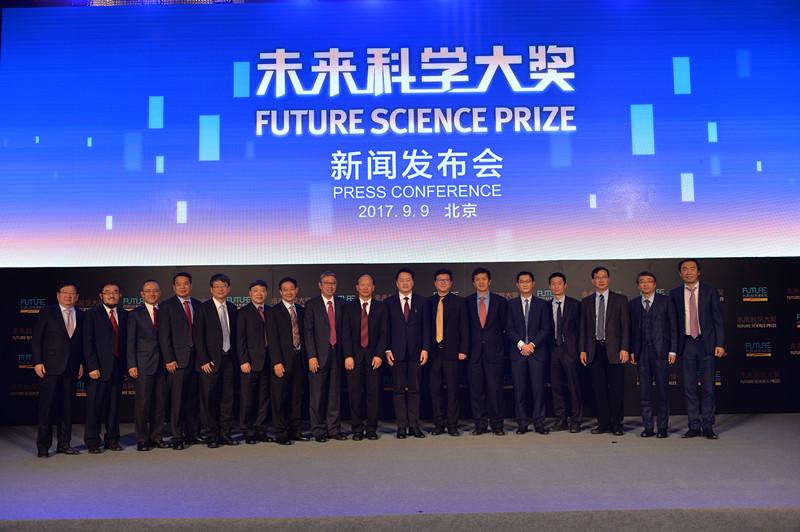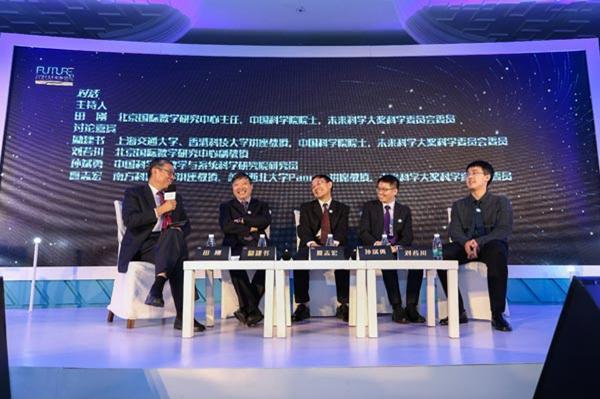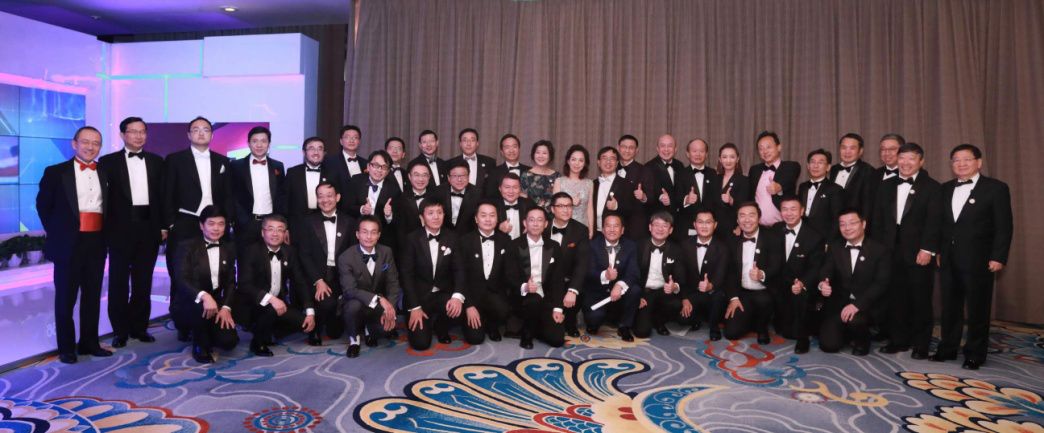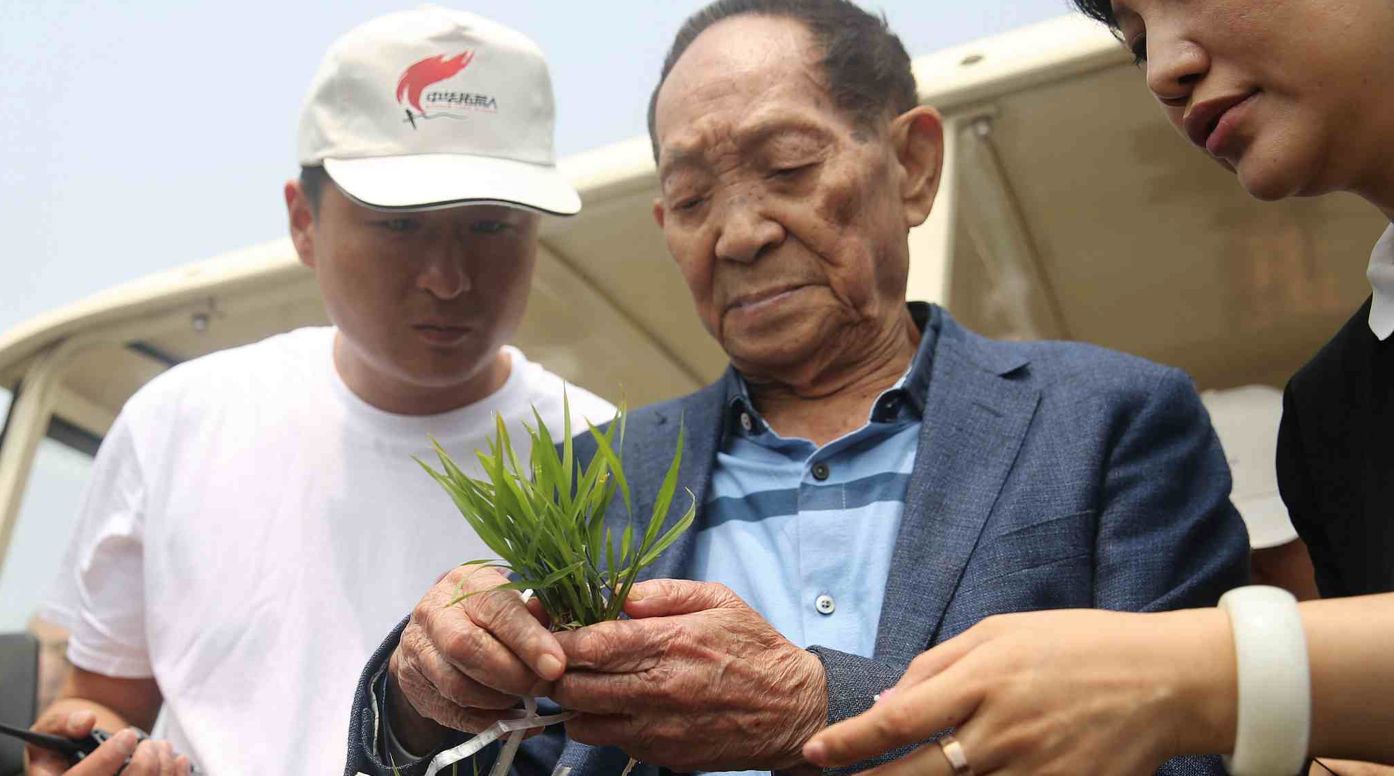On October 28, 2017 Future Science Prize and Future Forum Annual Conference held in Beijing.
Fourteen excellent young representatives selected by the Future Forum, Beijing No.4 High School, Beijing Academy, 17zuoye and iFLYTEK were invited to the 2017 Future Science Prize and Future Forum Annual Conference, where they talked face-to-face with Yigong Shi, Jianwei Pan and Chenyang Xu, three winners of 2017 Future Science Prize.
Professor Yigong Shi, winner of the Life Sciences Prize, never thinks a man’s social position is determined by his money. He admires Bill Gates because Gates donated a lot of money in treating diseases, funding scientific research, and helping the poor and those in need to make the society a better place. During the Q&A session, a student representative asked: “Since you have conducted scientific research for so many years, do you think intuition has actually helped your research?”
“Indeed, intuition is very important, but it should come from stringent, ample scientific training. Vigorous training is the base for all kinds of intuition. Only by numerous training and accumulated knowledge can you acquire a fusion of knowledge and get ‘a spark of great ideas’, so to say inspiration.”
When it comes to educational system, Shi believes that equality and excellence are contradictory to one another. Overstressed equality will harm excellence, while equality must be protected and maintained. “Take gaokao (national higher education entrance examination) for example, I stand steadfast for this exam, because it is the only way for children from rural, remote areas and poor families to change their future. Without gaokao, there won’t be so many great scientists and entrepreneurs from the countryside in our society.
How to encourage innovation in China, a populous country with scarce, unevenly-distributed educational resources and a society deeply influenced by oriental traditional culture, is a social problem. Its solution cannot come from a few persons or departments, but the in-depth contemplation and wise reaction of the whole society as well as the support of our cultural environment in general.”
Professor Jianwei Pan, winner of Physical Sciences Prize, also shared his story of being a student. “My bachelor thesis aimed to prove Einstein was right and quantum mechanics was ridiculous. Now 25 years have passed and experiments keep showing that the latter is right. Later, we gradually developed some technologies that can be of some help.”
When being asked the relationship between love and quantum mechanics, he said: “Before the rise of quantum mechanics, we cannot give you an answer. We only knew from Newtonian mechanics that our time and space were even and the universe would exist forever. But why is that? Where is the universe from? Quantum theory gives an explanation. It all started in the Big Bang. The singularity exploded. First-generation stars burnt out and exploded to neutron stars. The heavy elements generated out of the explosion evolved to second-generation stars, and later the sun is formed, and so is life. Without heavy elements, life can hardly exist.
The universe has created us and someday we want to have a glimpse of how it evolved. This is in itself a hard process. So many particles collide with one another to make us sit and talk here and now. What an extremely small chance and a huge luck! I cannot prove that love is necessary in theory, but maybe someday our equation will prove that love is the necessity for the equation. Of course, we cannot be sure. What I can say is that the universe has evolved from a place of no life to a place full of advanced lives, and we are here to look back and research on this process. This is indeed a magical and awe-inspiring thing to do.”
Professor Chenyang Xu, the winner of Mathematics and Computer Sciences Prize, is the only one born in 1980s among winners of this forum. “Since most of great historical mathematicians are westerners, I kept pondering on a question when I started learning mathematics. What is the difference between ways of thinking in China and western countries in studying math? History of math suggests that math is based on analytical methods in ancient Greece, and yet comprehensive thinking is stressed in the east. I believe in the starting phase of math research, we need more analytical thinking, but in the end we also need a compressive angle.”
When being asked to comment on math development in China, Xu thinks that the development of all science disciplines, including math, needs generations of hard work. As China’s economy gets stronger, more scientist and mathematicians will have the opportunity to research on basic theories, which was not financially feasible in the past. “In this regard, I believe I can witness the day when China becomes a leading country in mathematics.”
At the end of each dialog, three winners presented a certificate with their signature and approval of Future Forum respectively to student representatives, as a witness of their passion about science, and as an encouragement to their unremitting and fearless scientific exploration in the future.
The Future Forum is the only cross-fields nonprofit platform to promote science and scientists in China: it communicates science to the public, connects the scientific field with the market and catalyzes private funds to support scientific research. It shoulders the responsibility of inspiring and cultivating innovative ideas, capabilities and practices in youngsters, a driving force for future scientific and technological innovation.
Dialog between Youngsters and Prize Winners is a session when prize winners share their stories and experiences in life and scientific research with students. By giving a face-to-face communication opportunity between excellent scientists and youngsters passionate about science, this session also aims to pass science ideas and mission to young people and inspire future scientists.






